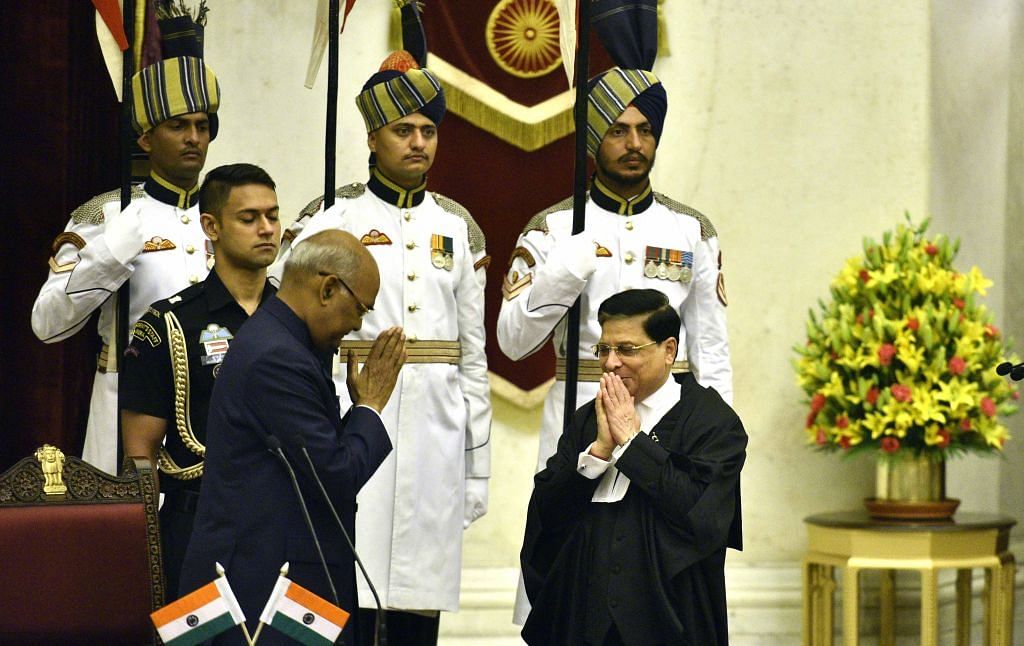A day after Justice Chelameswar refused to entertain Shanti Bhushan’s petition, justices A.K. Sikri and Ashok Bhushan admitted it.
New Delhi: The controversy around Chief Justice of India Dipak Misra’s use of his administrative powers refuses to die down, despite his reiteration of his authority.
Calling for a fresh examination of the issue, a Supreme Court bench of justices A.K. Sikri and Ashok Bhushan Friday sought the assistance of Attorney General K.K. Venugopal in a case seeking to “regulate the administrative powers of the chief justice”.
The bench was hearing a plea filed by former union law minister Shanti Bhushan. The hearing comes just a day after Justice Jasti Chelameswar, the second senior-most judge of the apex court, refused to entertain the plea.
The case will be heard after two weeks.
Senior advocates Kapil Sibal, Dushyant Dave and Prashant Bhushan led the charge against previous rulings of the court that held that the CJI has exclusive prerogative to assign cases to other judges.
“Your lordships say you cannot decide this issue on the judicial side and the CJI refuses to do it on the administrative side. This is the only order in the nation which it seems cannot be challenged,” Sibal said.
“The message needs to go out to the nation that this court’s functioning is not arbitrary,” Dave said.
Bhushan had written to the registry last week to not list the case before a CJI-led bench. But before Bhushan’s plea could come up in court, a CJI-led bench agreed to hear a similar plea and ruled on it within a day. The three judge bench, in its 11 April ruling, reiterated that as ‘master of the roster’, the CJI has the last word in assigning cases to other benches in the court.
In the same ruling, the court refused to frame any guidelines on how cases must be assigned.
A similar ruling was made in November last year by a five-judge constitution bench, again headed by CJI Misra.
After four senior judges in the 12 January press conference expressed concern regarding case allocation by CJI Misra, an official roster was put up on the court’s website. According to the current roster, a bulk of important matters, including all PILs and writ petitions or challenges to legislation are to be heard by the CJI.
